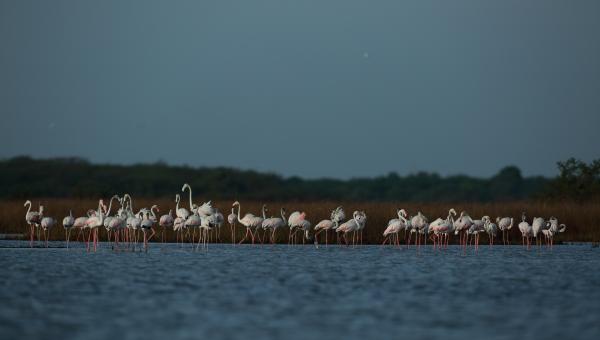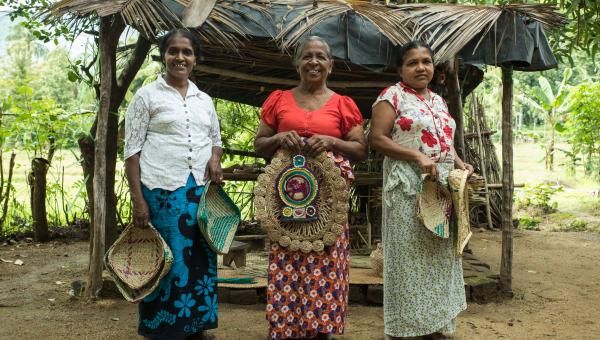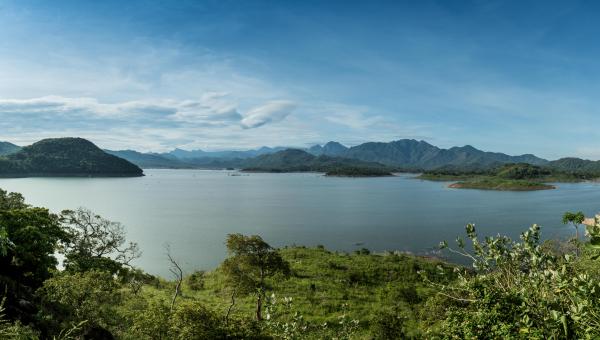
UNDP Sri Lanka
Climate and Environment
The Effects of Climate Change
As an island nation, Sri Lanka is highly vulnerable to climate change and disasters. The country’s unique biodiversity is currently threatened by climate change, habitat fragmentation and over-exploitation. Furthermore, Sri Lanka has been experiencing severe shifts in its seasonal rainfall patterns accompanied by increased flood and drought in the last decade directly impacting rural food security and incomes. The Dry Zone covers 70% of the island’s land area and is the country’s agricultural heartland and the main area where the staple rice is grown. Small-scale farmers with land holdings of less than two hectares dominate agriculture in this region.
Productivity and crop yields decline with low water availability and unseasonal rains resulting from climate variability and extreme events, farmers are dragged deeper into poverty and face food deficits, which have to be met by buying food for consumption, increasing the level of indebtedness and further eroding their capacity to cope with climate risks. In addition, farmers in the Dry Zone are also increasingly exposed to water related chronic illnesses such as kidney disease. High rates of morbidity and mortality among young male farmers are reported in the North Central and Northern Provinces. Women and youth in the Dry Zone communities are particularly more vulnerable to climate change impacts.
Clean Energy. Climate Change Adaptation. Disaster Preparedness
UNDP is assisting the Government of Sri Lanka to work towards a sustainable Sri Lanka building up institutional, legal and individual capacities to respond to the effects of climate change and natural and man-made disasters, by exploring the potential of renewable energy and energy and resource efficiency in production and consumption, while supporting reform and modernization of the environmental management systems and protecting our biodiversity.
OUR WORK IN CLIMATE AND ENVIRONMENT
Strengthening Gender Equality
Climate Change Adaptation Project (CCAP) ii :
• Strengthening the resilience of agricultural communities through sustained livelihoods engaging women through introduction and scaling-up of alternative livelihoods
• Creating ‘inclusive’ platforms for women to learn and generate income (non-traditional) breaking structural barriers of marginalization
• Capacity building initiatives enhance the ‘decision-making’ abilities of women through financial management, exposure to innovation and marketing skills.
Enhancing Biodiversity Conservation and Sustenance of Ecosystem services in Environmentally Sensitive Areas:
• Breaking gender barriers and stereotypes by women entering non-traditional jobs (such as divers) and participating in Bar Reef Marine Conservation and strengthening livelihoods through mobilizing community to engage in conservation
HCFC Phase-out Management Plan Stage - I:
• Innovative, ‘out of the box’ techniques to remove barriers and promote inclusion of women in the RAC field (entrepreneurs, technicians or engineers).
Preparation of Sri Lanka’s Third National Communication Project on Climate Change to the UNFCCC:
• Ensure women experts inform key reports such as TNC Report to UNFCCC where women with expertise in this area, inform greater gender inclusion and gender disaggregation criteria.
Sixth Operational Phase of the GEF Small Grants Programme in Sri Lanka:
• Engaging with women-led CSOs/ young women’s groups in addressing conservation efforts, recycling of waste and upscaling nature based solutions.
• Engaging with women-led lawyers who are environment activist that have intervened in conservation efforts in claiming a particular area in Mathegoda, as a protected area given it is a bio-diversity hotspot. These women have engaged actively with key stakeholders at policy level paving the way to ensure this area is gazetted as a protected area.

 Locations
Locations



